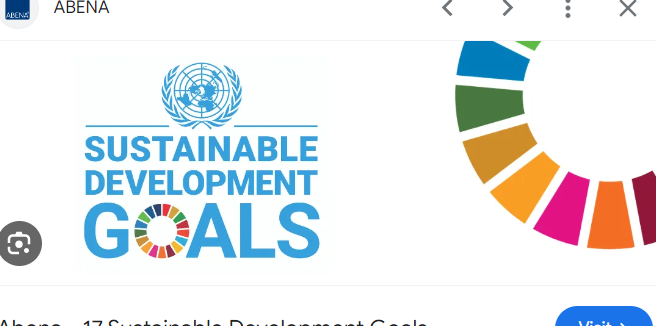Introduction:
Sustainable development has emerged as a guiding principle for addressing the complex challenges facing humanity in the 21st century. Rooted in the recognition of the interdependence between economic prosperity, social equity, and environmental integrity, sustainable development offers a holistic framework for achieving a harmonious balance between the needs of present and future generations. In this essay, we explore the concept of sustainable development, its underlying principles, the challenges it faces, and the pathways towards a more sustainable and resilient future.
Understanding Sustainable Development:
At its core, sustainable development is about meeting the needs of the present without compromising the ability of future generations to meet their own needs. This entails pursuing economic growth, social progress, and environmental protection in a mutually reinforcing manner, while also promoting equity and justice for all members of society. Sustainable development recognizes that economic prosperity cannot be sustained in the long term if it comes at the expense of social well-being or environmental degradation.
The Brundtland Commission, in its seminal report "Our Common Future" (1987), defined sustainable development as "development that meets the needs of the present without compromising the ability of future generations to meet their own needs." This definition highlights the importance of balancing economic, social, and environmental considerations in decision-making processes, and underscores the intergenerational dimension of sustainability.
Principles of Sustainable Development:
Several key principles underpin the concept of sustainable development:
-
Interdependence: Sustainable development recognizes the interconnectedness of social, economic, and environmental systems, and emphasizes the need for integrated approaches to address complex challenges.
-
Equity and Social Justice: Sustainable development seeks to ensure that the benefits of development are equitably distributed across society, and that the rights and needs of marginalized and vulnerable populations are respected and upheld.
-
Conservation and Stewardship: Sustainable development promotes responsible stewardship of natural resources and ecosystems, ensuring their conservation for present and future generations.
-
Precautionary Approach: In the face of uncertainty and potential risks, sustainable development advocates for precautionary measures to prevent harm to human health and the environment.
-
Participatory Decision-Making: Sustainable development emphasizes inclusive and participatory processes that empower all stakeholders, including communities, civil society organizations, and indigenous peoples, to contribute to decision-making processes that affect their lives and environments.
Challenges to Sustainable Development:
Despite its importance and widespread recognition, sustainable development faces numerous challenges that hinder its realization:
-
Unsustainable Consumption and Production Patterns: The current model of economic growth is characterized by unsustainable levels of resource consumption, environmental degradation, and waste generation, leading to biodiversity loss, climate change, and pollution.
-
Inequality and Social Exclusion: Persistent inequalities in income, wealth, and access to basic services undermine social cohesion and exacerbate poverty and exclusion, posing significant barriers to achieving sustainable development goals.
-
Climate Change and Environmental Degradation: Climate change poses one of the greatest threats to sustainable development, with rising temperatures, extreme weather events, and sea-level rise exacerbating environmental vulnerabilities and threatening the livelihoods and well-being of millions of people worldwide.
-
Loss of Biodiversity and Ecosystem Services: The rapid loss of biodiversity and degradation of ecosystems undermine the capacity of natural systems to provide essential services such as clean water, fertile soil, and climate regulation, posing significant risks to human health and well-being.
-
Governance and Policy Challenges: Weak governance structures, inadequate regulatory frameworks, and lack of political will pose significant challenges to the implementation of sustainable development policies and initiatives at the local, national, and global levels.
Pathways Towards Sustainable Development:
Addressing the complex challenges facing sustainable development requires a comprehensive and multi-faceted approach that integrates economic, social, and environmental dimensions. Some key pathways towards sustainable development include:
-
Sustainable Consumption and Production: Shifting towards more sustainable consumption and production patterns is essential for reducing resource use, minimizing waste generation, and promoting circular economy principles that prioritize resource efficiency and waste reduction.
-
Social Inclusion and Equity: Promoting social inclusion and equity is critical for ensuring that the benefits of development are shared equitably across society, and that marginalized and vulnerable populations have equal access to opportunities and resources.
-
Climate Action and Environmental Protection: Taking urgent action to mitigate climate change and protect the environment is paramount for safeguarding the planet's ecosystems and ensuring the long-term sustainability of human societies. This includes transitioning to renewable energy sources, reducing greenhouse gas emissions, and conserving biodiversity and natural habitats.
-
Sustainable Urbanization and Infrastructure Development: Promoting sustainable urbanization and infrastructure development is essential for creating livable, resilient cities and communities that prioritize access to essential services, public transportation, green spaces, and affordable housing.
-
Global Cooperation and Partnerships: Enhancing global cooperation and partnerships is crucial for addressing transboundary challenges such as climate change, biodiversity loss, and pandemics, and for mobilizing resources and expertise to support sustainable development efforts in developing countries.
Conclusion:
In conclusion, sustainable development offers a compelling vision for building a more prosperous, equitable, and resilient future for all. By integrating economic, social, and environmental considerations into decision-making processes and adopting a holistic approach to development, we can address the complex challenges facing humanity and create a world where present and future generations can thrive in harmony with nature. However, achieving sustainable development will require collective action, political will, and transformative change at all levels of society. As we navigate towards a more sustainable future, let us heed the call of sustainable development and work together to build a world that is inclusive, equitable, and environmentally sustainable for generations to come.

